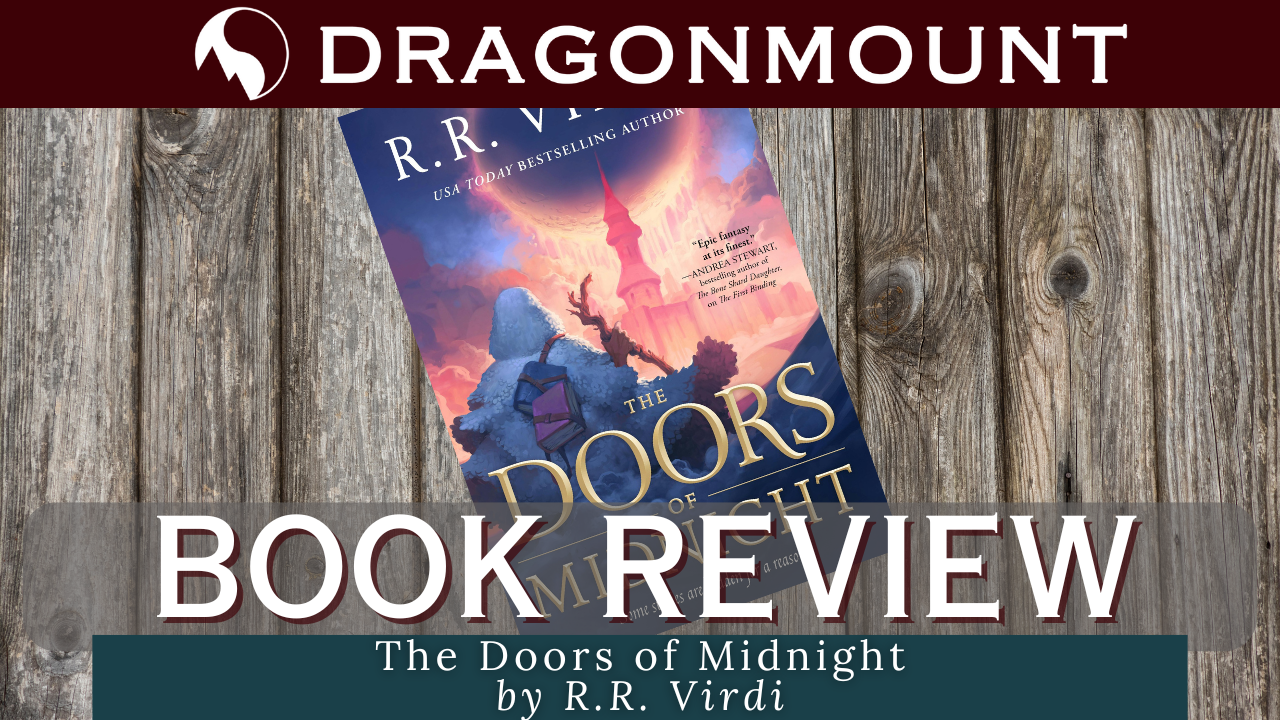
Rajiv Moté is Dragonmount’s book blogger with a lens on the craft of fiction writing. When he’s not directing software engineers, he writes fiction of his own, which can be found cataloged at his website.
“A thing is a thing, not what is said of that thing.”
This mysterious quotation from the movie Birdman claims that there is a reality that exists apart from the narratives we weave around reality. On its face, that’s obvious. But in an age when narrative shapes perception, and perception manifests reality, it’s a radical rebuttal to what some call a post-truth era, in which those who control the narrative control reality.
We need narratives. Stories are how we make sense of the world. But the more emotionally compelling the story, the less it needs to conform to the nuts-and-bolts of reality. Our beliefs are a filter that shapes our truths. There is both power and danger in that. We must remind ourselves that all stories have a teller. How far we trust a given storyteller is up to us. Stories are a kind of magic—we must be mindful of who's casting the spell.
The Doors of Midnight, just released in August 2024, is the second volume of R.R. Virdi's Tales of the Tremaine, a Silk Road epic fantasy that is all about stories and how they shape and are shaped by reality. The books follow Ari, a traveling storyteller and student of magic, across two timelines in a story-within-the-story (with many more nested stories). In the present, adult Ari is not only a storyteller, but The Storyteller, whose carefully cultivated reputation precedes him and grants him access to the wealthy and powerful. This is useful, because he’s hunting demons masquerading as the wealthy and powerful.
His path keeps crossing with a mysterious beauty called Eloine who wants nothing more in life than to listen to Ari tell her his life's story and unburden himself of his troubles. And he does! With enthusiasm! This is the inner story of Ari's adventurous youth as a student of magic, a collector of folklore, a pursuer of the demons who killed his adoptive family, a prince of thieves, a cloaked vigilante, a spy for a desert warlord, an apprentice to a mystic, an apprentice to a demigoddess—and more.
Ari had a busy youth, but he keeps himself no less busy as an adult, playing politics, investigating nobles, searching for obscure texts, getting involved with assassination plots, and always—always—telling people his story. Ari absolutely loves telling his own story, spreading rumors about himself, and knowing that people are talking about him.
Quote
“And through it all, I added rather wonderfully to my already growing reputation. My white cloak, combined with all of my usual cleverness and skill in spinning stories, aided a great deal in this.”
Ari, past and present, is an incredible narcissist. It's a trait that is integral to the theme: Ari is preoccupied with (re-)inventing himself through stories, but in doing so, may be locking away truths about himself that he must someday face. That day of reckoning never happened in the chunky previous book, The First Binding, nor did it happen in the likewise hefty The Doors of Midnight.
For me, it became tiresome. This could be a coming-of-age story, but Ari never really matures out of his self-absorption. This could be a self-discovery story, but the lessons of Ari's myriad adventures seem short-lived. This could be a quest for vengeance, but Ari never seems to get any closer. Not yet, anyway. Maybe in the next volume. So what kind of story is it?
The Doors of Midnight, like its predecessor, ends up being a collection of adventure tales, loosely strung together. This, too, is no accident. R.R. Virdi is a scholar of folk tales and how they morph and merge as they travel. Characters and events conflate, fragment, or get repurposed. They become canon here, apocrypha there. Ari, The Storyteller, is crafting a legend about himself.
Tales of the Tremaine is a quilt of episodic patches with an organizing theme and a potential reckoning on the distant horizon. Unfortunately, the question also arises: how much longer will we care? The story references Scheherazade and her narrative tease of stretching out her story for a thousand-and-one nights, but The Doors of Midnight is unfortunately less capable of keeping us breathless for what happens next. Though there are some scenes of beauty and wit, for me, it was often a slog to get through the weighty tomes of this saga.
Part of my problem is that, despite having the lofty title of The Storyteller, Ari isn't a storyteller that trusts his audience to get the point. He will present a lovely image, heavy with implication, and then spend the next paragraph or more explicating it.
Quote
“She didn’t wait for me to find the rest of the words. ‘It’s fine. I shouldn’t have said what I said either. I know it bothers you.’ Aram didn’t elaborate, and she didn’t need to. We both knew enough to hear the things unspoken.
I suppose that’s one of the signs of true friendship. You begin to learn the shape of one another’s thoughts—their hearts. And in doing so, you learn to speak another thing. A new language. One unknown, and unheard by anyone other than the two speaking it. And sometimes, a great deal can be said within that stillness and silence.”
Ari can't leave anything unspoken. He needs to narrate, pontificate, repeat himself, expound on meaning, and offer his wise insights—but they aren't all that deep. The adult Ari, who is ultimately the narrator of both past and present timelines, still reads like a young person sounding out his own thoughts and treating them with a self-important gravitas that an older reader might find unwarranted and tedious. It is, unfortunately, the prevailing style of the narration.
By contrast, the best parts of the book are when Ari learns that other characters (usually women) have internal lives, his assumptions about them have missed the mark, and their stories are perhaps more interesting than his own. These breaks from narcissism into humility make Ari sympathetic and human—for as long as they last. Ari learning to listen is actually a plot point, though it's unevenly applied. Sadly, these lessons occur in the narrated past, and Ari-the-narrator shows no signs of having grown from them.
The magic in this saga is compelling and gets right to the heart of the thematic intersection of reality and stories. Imagine a multiverse where anything is possible within the logic of a story. Practitioners of the magic in this world envision their version of the story and bind it to reality. They impose their narrative on the world. It's an amazing metaphor, which hasn't yet been used to its full effect, but there are hints that this is coming.
Stories can be used not only to create a reality, but to hide one, and this story drops hints that the key to Ari defeating his demonic enemies (and discovering his own birthright power) is in discovering the truth hidden behind the stories—or perhaps discovering the true story beyond what others have imposed onto reality. Fans of metafiction like me are champing at the bit to see the promise of this idea realized. This book tells us R.R. Virdi is still making the promise, but we don't see it fulfilled just yet.
There are enough similarities between Virdi's Tales of the Tremaine and Patrick Rothfuss’s The Kingkiller Chronicles that one could wonder if Virdi's saga is a viable replacement for the Rothfuss story that may never be completed. Beside the myriad details that map directly to one another, both are ultimately tales that the narrator is telling about himself that call for a healthy dose of skepticism by the reader. Alas, while the elements of the two series have a lot of overlap, Virdi's approach to storytelling doesn’t scratch the same itch. With Rothfuss, there is enough of a difference between youthful and adult Kvothe that it sparks a mystery around the unreliable narration and the character’s Mary Sue-ness. With Virdi, I feel like I’m granting Ari the benefit of the doubt, and hoping for a payoff. The difference is the strength of the through-line, which in Rothfuss seems to build, but in Virdi, feels deliberately diffuse, like a collection of folk tales. I admire the cultural anthropology of Virdi’s approach, but I’m more drawn into the narrative momentum of Rothfuss’s story.
I’d have enjoyed The Doors of Midnight more if only Ari’s storytelling lived up to his self-appointed title as The Storyteller.












Recommended Comments
There are no comments to display.
Join the conversation
You can post now and register later. If you have an account, sign in now to post with your account.
Note: Your post will require moderator approval before it will be visible.